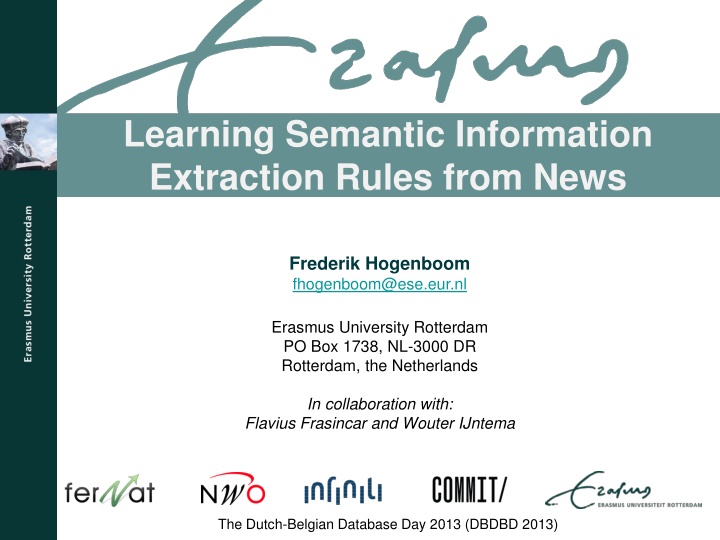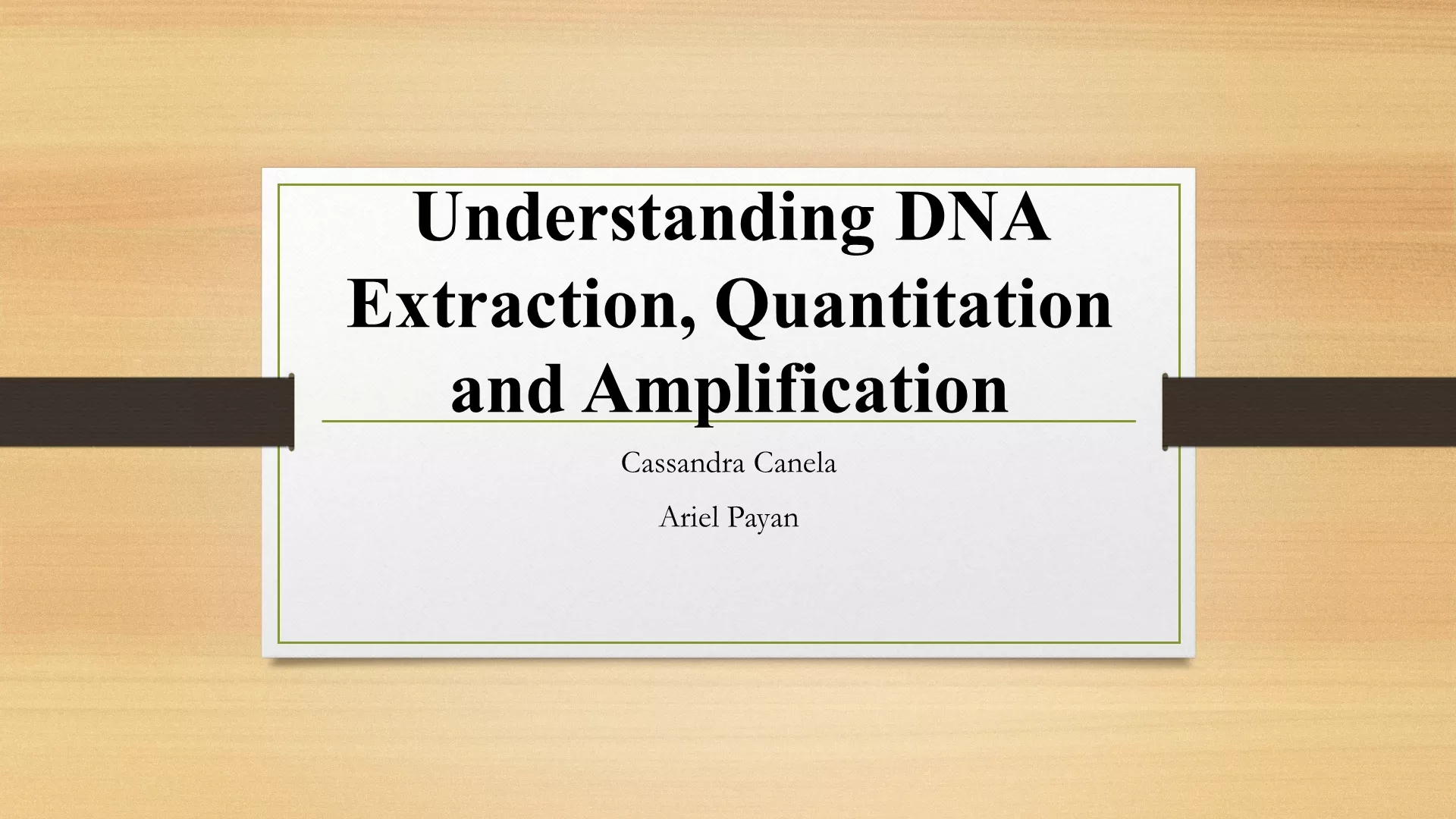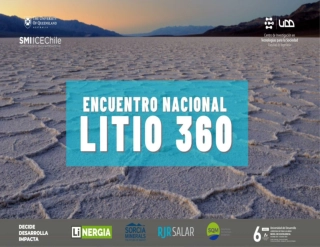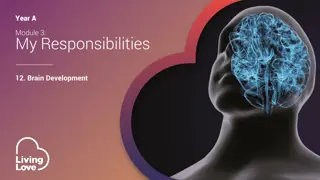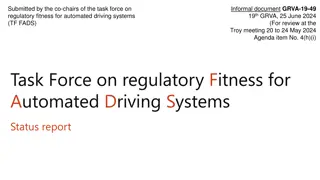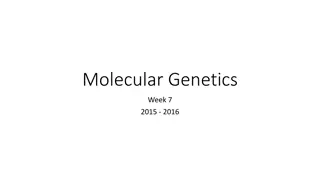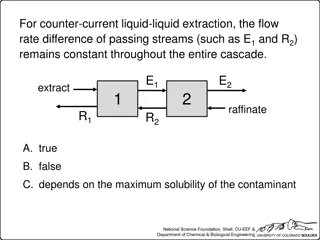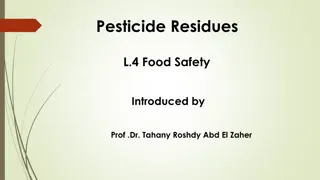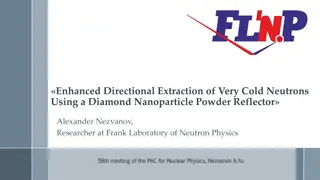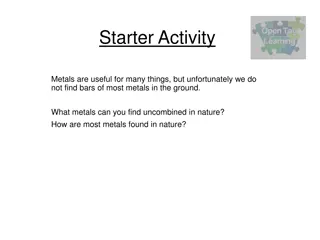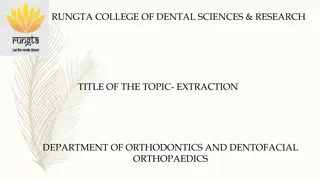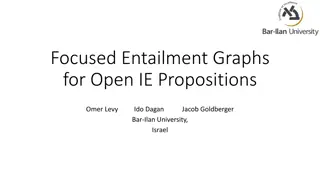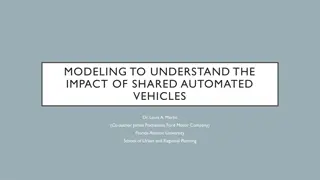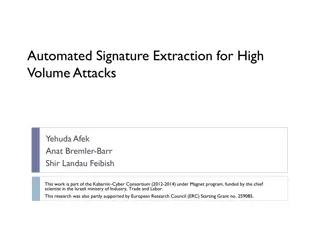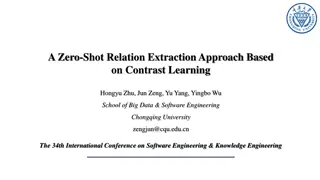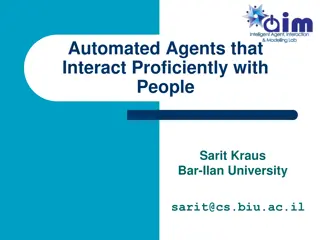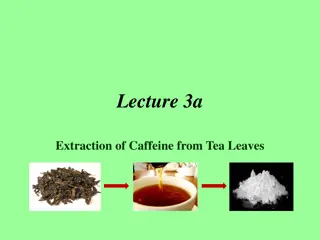Automated Information Extraction for Decision Making in Data
Processing unstructured data from sources like news, blogs, and papers is a challenge due to the volume of digital data. The Dutch-Belgian Database Day 2013 discusses event extraction as a solution using natural language processing and statistics. Event extraction can benefit systems in personalized news, risk analysis, monitoring, and decision-making support. Common event domains include medical, finance, politics, and environment.
Download Presentation

Please find below an Image/Link to download the presentation.
The content on the website is provided AS IS for your information and personal use only. It may not be sold, licensed, or shared on other websites without obtaining consent from the author.If you encounter any issues during the download, it is possible that the publisher has removed the file from their server.
You are allowed to download the files provided on this website for personal or commercial use, subject to the condition that they are used lawfully. All files are the property of their respective owners.
The content on the website is provided AS IS for your information and personal use only. It may not be sold, licensed, or shared on other websites without obtaining consent from the author.
E N D
Presentation Transcript
Learning Semantic Information Extraction Rules from News Frederik Hogenboom fhogenboom@ese.eur.nl Erasmus University Rotterdam PO Box 1738, NL-3000 DR Rotterdam, the Netherlands In collaboration with: Flavius Frasincar and Wouter IJntema The Dutch-Belgian Database Day 2013 (DBDBD 2013)
Introduction (1) Increasing amount of (digital) data Problem: utilizing extracted information in decision making processes becomes increasingly urgent and difficult: Too much data for manual extraction Yet most data is initially unstructured Data often contains natural language Solution: automatically process and interpret information, yet automation is a non-trivial task The Dutch-Belgian Database Day 2013 (DBDBD 2013)
Introduction (2) Information Extraction (IE) Multiple sources: News messages Blogs Papers Text Mining (TM): Natural Language Processing (NLP) Statistics Specific type of information that can be extracted: events The Dutch-Belgian Database Day 2013 (DBDBD 2013)
Events (1) The Dutch-Belgian Database Day 2013 (DBDBD 2013)
Events (1) The Dutch-Belgian Database Day 2013 (DBDBD 2013)
Events (1) The Dutch-Belgian Database Day 2013 (DBDBD 2013)
Events (2) Event: Complex combination of relations linked to a set of empirical observations from texts Can be defined as: <subject> <predicate> <subject> <predicate> <object> e.g., <Company> <Buys> <Company> e.g., <Person> <Resigns> Event extraction could be beneficial to IE systems: Personalized news Risk analysis Monitoring Decision making support The Dutch-Belgian Database Day 2013 (DBDBD 2013)
Events (3) Common event domains: Medical Finance Politics Environment The Dutch-Belgian Database Day 2013 (DBDBD 2013)
Event Extraction In analogy with the classic distinction within the field of modeling, we distinguish 3 main approaches: Data-driven event extraction: Statistics Machine learning Linear algebra Expert knowledge-driven event extraction: Representation & exploitation of expert knowledge Patterns Hybrid event extraction: Combine knowledge and data-driven methods Our focus: expert knowledge-driven event extraction through the usage of pattern languages The Dutch-Belgian Database Day 2013 (DBDBD 2013)
Existing Approaches Various pattern-languages for: News processing frameworks (e.g., PlanetOnto) General purpose frameworks (e.g., CAFETIERE, KIM, etc.) Language types: Lexico-syntactic Lexico-semantic However: Limited syntax Weak semantics Cumbersome in use Extract entities, but not events The Dutch-Belgian Database Day 2013 (DBDBD 2013)
Semantics Semantic Web: Collection of technologies that express content meta-data Offers means to help machines understand human-created data on the Web Ontologies: Can be used to store domain-specific knowledge in the form of concepts (classes + instances) Also contain inter-concept relations The Dutch-Belgian Database Day 2013 (DBDBD 2013)
Pattern Language (1) Basic syntax: LHS :- RHS LHS: subject, predicate, object (optional) RHS: pattern in which subject and object are assigned: Literals (text strings) Lexical categories (nouns, prepositions, verbs, etc.) Orthographic categories (capitalization) Labels (assigning subject and object) Logical operators (and, or, not) Repetition ( 0, 1, 0-1, {min,max}) Wildcards (skip 0 or exactly 1 word) Ontological concepts The Dutch-Belgian Database Day 2013 (DBDBD 2013)
Pattern Language (2) Example: The Dutch-Belgian Database Day 2013 (DBDBD 2013)
Rule Creation Groups of rules extract specific events Creating such groups is cumbersome, error-prone and time-consuming If the language is implemented using tree structures, a genetic programming approach can be employed for learning rules automatically The Dutch-Belgian Database Day 2013 (DBDBD 2013)
Rule Learning The Dutch-Belgian Database Day 2013 (DBDBD 2013)
Implementation The Hermes News Portal (HNP) is a stand-alone Java-based news personalization tool We have implemented the Hermes Information Extraction Engine (HIEE) within the HNP Pipeline-architecture is based on GATE components The Dutch-Belgian Database Day 2013 (DBDBD 2013)
Evaluation (1) We compare the performance of rule learning versus manually creating rules: Using a data set on economic events (500 news messages): CEO Profit Product Loss Shares Partner Competitor Subsidiary By allowing for 5 hours of construction time per rule group (including reading, thinking, writing, ) Based on the Precision, Recall, and F1-measure President Revenue The Dutch-Belgian Database Day 2013 (DBDBD 2013)
Evaluation (2) Automatic Learning Precision Recall 0.667 0.508 0.905 0.613 0.808 0.356 0.698 0.309 0.904 0.904 0.821 0.793 0.788 0.793 0.960 0.522 0.900 0.450 0.939 0.805 0.839 0.605 Manual Creation Precision Recall 0.875 0.818 0.450 0.611 0.824 0.833 0.862 1.000 0.455 0.530 0.726 Name Competitor Loss Partner Subsidiary CEO President Product Profit Sales ShareValue Total F1 F1 % 0.577 0.731 0.494 0.429 0.904 0.807 0.791 0.676 0.600 0.867 0.703 0.280 0.333 0.391 0.239 0.700 0.455 0.596 0.273 0.455 0.778 0.450 0.424 36.0% 0.474 54.3% 0.419 18.0% 0.344 24.8% 0.757 19.5% 0.588 37.2% 0.704 12.3% 0.429 57.7% 0.455 32.0% 0.631 37.5% 0.555 26.6% The Dutch-Belgian Database Day 2013 (DBDBD 2013)
Conclusions We presented HIEL, a lexico-semantic rule language for event extraction Rule creation is cumbersome, and hence a genetic programming-based learning approach is proposed Lexico-semantic rule learning performs better than the manual alternative in terms of precision, recall, and F1 Future work: Evaluate approach for existing lexico-semantic languages Evaluate on other domains Link events to trading algorithms instead of news personalization The Dutch-Belgian Database Day 2013 (DBDBD 2013)
Questions The Dutch-Belgian Database Day 2013 (DBDBD 2013)
